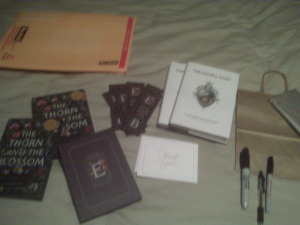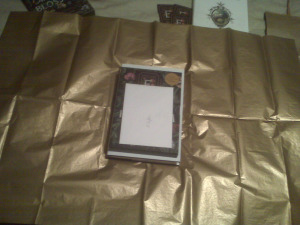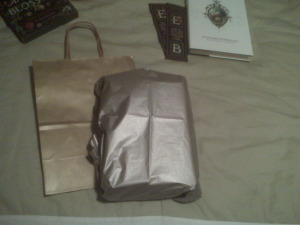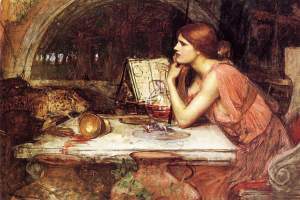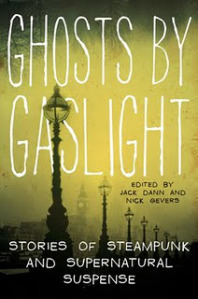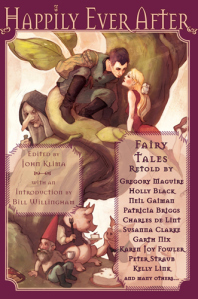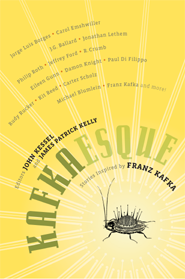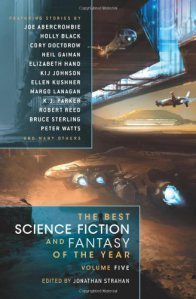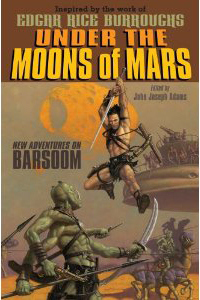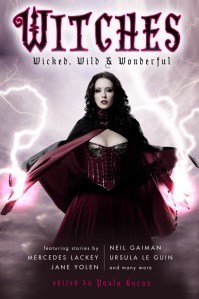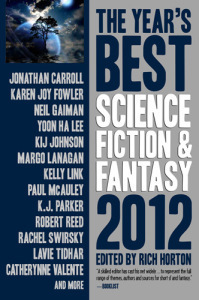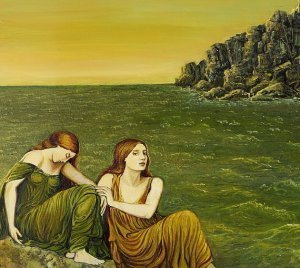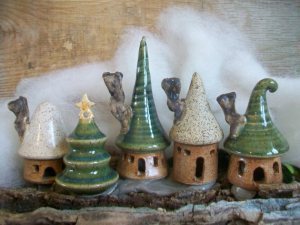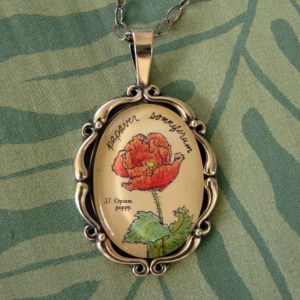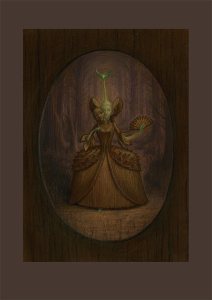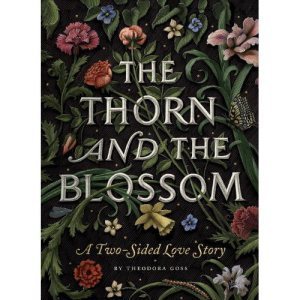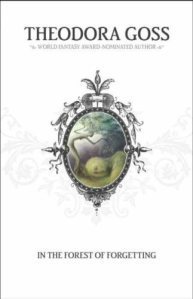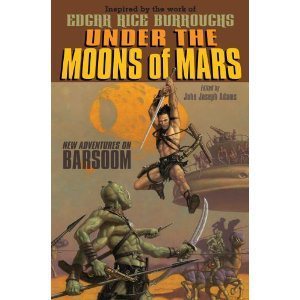Theodora Goss's Blog, page 42
January 10, 2012
Book Giveaway #2
Thank you again to everyone who participated in Book Giveaway #1! Those of you who participated might like to know that the giveaway post and comments got hundreds of hits in just a couple of days, so there was a lot of interest in both the giveaway and the entries. It was the most popular post so far this month!
This is the second book giveaway, and here is how it works. Once again, I'm going to ask a question and ask you to write a paragraph or so. Longer is all right if it's not too long – if you're wondering about length, take a look at the entries that won and got honorable mentions in the first giveaway, which are about the right length. But notice that length didn't necessarily help: some of my selections were relatively short.
Once again, the giveaway is for a signed copy of In the Forest of Forgetting and a signed copy of The Thorn and the Blossom, plus cool bookmarks, and there will be two winners.
Here is the question:
I've traveled a lot, and there's quite a lot of traveling in my stories. In The Thorn and the Blossom, Evelyn travels to the Cornish town of Clews, where she meets Brendan Thorne. If you could travel anywhere, where would it be, and what would you do when you got there? It can be a real place, or a place that you or someone else has imagined. Again, be creative!
I'm also going to post some pictures of me wrapping the books from the first giveaway, as well as from the auction for Terri Windling. Here are all the supplies laid out on the bed:
And the books being wrapped in gold and silver tissue paper before being put in bags that will keep them safe while en route:
And finally the wrapped books, before they are put into those nice gold bags, which are put in the envelopes:
Last time, quite a few people said that whether or not they won, it was a fun writing exercise, and I hope that once again this question will stir your imagination. Think of it as a way to write a prose poem or start a story! Or even a novel! I'm looking forward to seeing what you come up with . . .
Addendum: Sorry, a friend pointed out that I did not post how long this giveaway will last. Like the last one, it will end on Sunday night, midnight my time (Eastern Standard Time).








January 9, 2012
Imaginary Gardens
It was so difficult to choose the winners of Book Giveaway #1! The descriptions of imaginary gardens were gorgeous: everyone who entered created magic, and I had a wonderful time reading them. I'm going to start by telling you about the two winners, and then I'm going to include six honorable mentions. I chose the honorable mentions because I did have such a difficult time, and I wanted to feature them as well. But please remember that my choices were subjective. They would not necessarily be your choices, and I was impressed by the poetry and imagination in every description. (I just wanted to mention, as well, that I recognized several former students of mine, and you all write beautifully!)
The two winners are Phillis Holliday and Anita Edmonds. I chose Phillis' because I loved the idea of a secret garden in which children can get away from their troubles and learn strength. It was a garden with a story – I can imagine an entire story coming out of it! And I chose Anita's because it was written by a true gardener, who knows what she's talking about. I don't know if it's a real garden, but it sure sounds real! And exactly like the sort of place I would very much want to live myself. Congratulations to the two of you. I'll be in touch by email to get your addresses so I can send you the books! (And as you've probably guessed, you won't be eligible to win in the second or third book giveaways, although you're still welcome to participate.) Here are the two winning descriptions.
From Phyllis Holliday:
This is a small garden in the great city of secrets. There is the reek of garbage and sickness in the alleys and evil thoughts jumbled in lost minds. It is no place for a child. Yet the children do survive for they find a way to get into the garden. Some come through an alley, led by thin wise cats like shadows. Some discover the way by a tunnel under a rotting building. All in all they arrive and breathe in the scent of mint, clover, certain flowers they cannot name and vines on trees and no matter what the weather or time of day, there is always a blue sky and birds singing. There is a small playhouse with a mossy roof, and inside, a table set with tea party cups, teapot, tiny sandwiches and raisin cookies. Some play hostess or host and some go into the room with all the books and some find the musical instruments they suddenly know how to play. Out on the green lawn, surrounded by a thicket of thorns, they tell each other stories and how they will escape their dangerous alleys and frightening shadows. The garden is where they invent a life full of joy and magic and above all, how to live in danger and surpass it. This garden can be found in many cities and you could pass by the children and never know where they go when they are not seen.
From Anita Edmonds:
I live in a small, elderly, untidy cottage, filled with cats and books and yarn, built in a space carved from the forest. My garden is a glorious confusion of herbs and flowers, vegetables and the occasional fruit tree (persimmons!) . . . and it bleeds into the woods on all sides, where the squirrels chase each other up and down the trees (and in their spare time bury black walnuts everywhere), and the jays screech from the branches when they see me come out, and the cats stalk mice in the underbrush. There's a groundhog living under the front porch; I feed him apples and peanuts during the warm months, and he confines his depredations to the patch of greens planted near his house, and the clover in the path. There is a patch of nettles down near the beehives, and my medicinal herbs spill out from that, and behind them is a tangled patch of black raspberries, and a few blackberry bushes. The kitchen garden is just outside the back door; I can go down two steps and out the stepping-stone path down to the rosemary bush, clipping this and that as I go. Below that are vegetables: cucumbers and squash and lettuce of all kinds, tomato plants on a long trellis, tepees of beans and corn, rows of onions, and half a dozen hens scratching industriously between the rows and nipping the occasional bite of a green leaf. There's a huge old fig against the south side of the house, and flowers everywhere: clove pinks and gillyflowers, lad's-love and kiss-me-over-the-garden-gate, daisies and foxgloves, daffodils and crocuses and little wild violets that make lovely jam in the spring, hummingbird sage and Michaelmas daisies in fall, moss roses and lemon balm rampant along the path, and a bed of cowslips and lungwort under the maple tree . . . there are clumps of feverfew everywhere, pots of geraniums on the back porch, a spill of thrift over the edges of an old birdbath, and bird feeders hung in any tree I could reach. The cats and I sit on the front porch beneath the Japanese wind bell and the hanging baskets of petunias (grown from seeds my grandmother gave to me), and watch them, hour by hour, while I knit innumerable hats and contemplate my unbelievable luck at this, my one and only life, just as I dreamed it.
Here are the six honorable mentions. Again, I chose each of these because they engaged my imagination and transported me to places where I wanted to go. I'm sorry, I wish I could send you all books as well, but I'm going to announce Book Giveaway #2 tomorrow. Please feel free to enter again!
From Wendy S.:
My garden would be a dreaming garden where all the flowers, herbs and sagacious weeds would speak to me each night and tell me their stories. From the Old English Tudor Roses, I would ask if the War of the Roses caused any family feuds, much like the Capulets and Montague's and do they need any family counseling to mend old thorny wounds. I would ask my little Hearts-ease what I needed to do to heal a broken heart of long ago that still ached in the summer months. I would talk to Rosemary and ask her if Ophelia really did use her to remember anything logical before she decided to become the owls daughter. My Monkshood and Foxglove would whisper the secrets of the Fae who gathered each night and danced under their petals. And I would tell one of my most favorite flowers of all, the little modest, Wallflower that really she was quite beautiful and charming and just because the other flowers were showier or rambled on and on, that she didn't have to do anything but to be herself and she was a treasure unto herself.
From Lynn:
It would be a moon-garden of white flowers only, glowing under a full moon. It would never be found in the same place; neither would it ever look the same: sometimes huge and sprawling; sometimes small and intimate. There would be foxgloves taller than me; thick hedges of tea roses which would hide the rest of the garden from view; tiny lily of the valleys dotting the ground like pebbles marking my way. And there would always be one flower, not easy to find, lit from within by a brilliant opal fire. It would slowly swell open and on each of its petals would be tiny spider-silk writing telling a story of wonder, of landscapes, of adventures beyond any I could imagine.
From Arijah:
In my imaginary garden, there would be a wisteria arbor which would have musical stepping stones, each with a different tone so that one might spend hours hopping from one to the other. The path would lead to a Koi pond; a reflection pool with a small trickling waterfall. Opalescent pebbles would line the bottom and water lilies and frog pads would adorn the surface. Frogs would sing their songs there at night. The pond would be surrounded by fragrant herbs and grasses, and tea trees would grow at one side and small fruit trees to the other. Mushrooms that glow in the dark, in shades of white and blue would be scattered hither and tither. The path would divide into four around the pond. Each path holding mysterious and fun statuary amidst weeping willows . . . their long flowing branches make the best hidden tea rooms and hiding places. There would be a wide opening in the canopy to view the stars and full moon at night, and directly under would be planted peppermint. Throw a blanket over the peppermint to lie down and gaze up at the stars, and with every movement the smell of candy canes would fill the air. Wind chimes made of old things like Grama's silverware, pieces of tubing and odd things like keys, would hang from the branches so that they ting and clack in the breeze. Roses would grow to the east so they fill the air with aroma when the sun rises. On small tree stumps, fairy cups would be placed on fairy saucers to catch the rose morning dew. Moon-flowers would grow to the West along a tree line where the forest begins.There, dividing the garden from the forest would be a door. Mysterious noises would always emanate from the forest, so that the curious might get close enough, press an ear against the door, hear a faint step or whisper and then quickly retreat back to the safety of the garden . . . perhaps hiding under one of the willows. "Wishing fuzz" (at least that's what we used to call them), the seeds from dandelions, would flow in the breeze . . . illuminated by the sunlight through the branches,they look like little stars skipping along. Dragonflies would make home there, birds would find rest and nest there, and the occasional fox might make escape by way through there, but for sure there would always be magic there.
Arijah also included some illustrations on her blog.
From Jen Adam:
To find my garden you would have to follow a path of crescent moons pressed into the grassy loam by wild horse hooves. A strand of golden hair snagged from a banner tail and caught in the branches of a hawthorn, a tuft of silver tugged from a velvet coat by the grasping boughs of a holly hedge – these are signposts proving the trail. A curtain of wild ivy hides the entrance, stretched across a gate of tangled oak limbs and twisted birches. On the other side, willow trees and maples, ash trees and fir trees and cedars frame a clearing of soft grass.
There are no benches in my garden, but a fallen log on one side with a seat carved by the hands of time. Climbing roses screen a stone wall, relic of an old homestead and a promise that all things change. Violets and bleeding hearts and forget-me-nots hide in dim blue shadows while bolder black-eyed susans and flirting daisies and lilies of every color shine in brighter spaces.
In the center of my garden is an apple tree, the fruits of which may offer Truth, or Faith, or Freedom, or Courage . . .
. . . if the wild horses let you pass.
From Pat Bowne:
The garden obviously belonged to a person with many interests and a short attention span, for no two parts of it were alike and nothing in it was completed. The pond, for instance: bordered at one end with beautifully joined and polished stones, over which a fountain spurted from a bush cut into an impossibly detailed face, yet the other end of the pond shallowed into mud and mint, and the other side of the bush trailed off in spindly, sparse-leaved branches overcome at their ends by a pumpkin vine and two tipsy cabbages. One branch of the rosebush arched over a chair whose seat and arms were as polished as the pond's rim, its back and legs still bark-covered, while the others flopped into an untrimmed knot of lavender and kale, next to a patch of velvet-smooth lawn half bordered by thyme and half-hidden by the meadow grasses that flopped into it. Everything was just the size for one small person to sit or paddle or pluck or lie in. It was, in short, a witch's garden, and the garden of a clever witch at that. There was not a whole thing in it, not one item that any of the spirits dancing attendance upon her could take into itself and say "There I have you, now you are mine!"
From Matt:
"If you have a garden and a library, you have everything that you need." – Cicero
It is a garden full of stories, this one. If you stand in front of the gates – wrought-iron, crested by words in a language you don't recognize – and look through, it doesn't seem so unusual. Chinese red birches and Mount Etna brooms, cinquefoil and hyacinth, lotus and foxglove: though beautiful, not everything here is safe.
Inside are stone benches and great swaths of grass situated just so beneath the shady overhang of the trees; no matter which way the sun moves, the shadows remain in place, and the air feels right, whatever your clothing. A massive fountain spouts water from a central statue into a large round pool. A statue of what? I cannot tell you what you see. For me, it's an uncanny recreation of a woman I fell in love with pouring water out of a pitcher – an Aquarius of sorts. The sight comforts me as much as it breaks my heart. I told you there was danger here, didn't I? And this place is not about me, not exactly.
Run your hands through the water. Cold, yes? On some days, the water is like the Styx – one sip and you forget, not everything and not forever, but for a while. That's the nice thing about gardens and stories. The escape. Though it never can last. On other days, it's like the Fountain of Youth, but not exactly. Rather than making you younger, it brings back memories with such perfect clarity, it's like re-living them all over again. Perfect oblivion or perfect remembrance. Think long and hard before you drink.
The real draw, though, are the trees and the flowers. These are where the stories lie. On this leaf you'll notice a word: Life. The veins somehow form letters. Botanists regularly clamor to get inside here, but why spoil the mystery? In autumn, when the ground is covered in gold and orange and scarlet, you can trample your way through a whole library. Smell the flower. Any one will do. You hear it, don't you? A story. Building a world between walls. One artist's imagination made manifest. The wrong skin. Breathe it in, and the more you'll hear. Or take a little from here, a little from there. Make it your own. The stories don't live in a vacuum. They need you to live.
I want to particularly point out the roses. The thorns? Those rekindle heartache. But the scent? Oh that transports you to the moment – or moments, if you're a lucky sort – of purest joy. Love, often, but not always. Again, if you want to savor the good, you must risk the bad.
Whose garden is this? Mine? No, by no means. It belongs to everyone. Please visit again soon. Often. Tell people about it. If not, if this place is neglected . . . well. Everything here dies.








January 8, 2012
Fantasy Magazines
Reminder: Book Giveaway #1 ends at midnight, my time, tonight (in about four more hours)! So if you want to enter, make sure to get your garden description in by then. For the rules, look under Book Giveaway #1 below. I'll be reading the descriptions tomorrow and selecting a winner. And then I'll be announcing Book Giveaway #2!
I came to a realization today. First, Realms of Fantasy folded, and now Fantasy Magazine is being incorporated into Lightspeed. That means in one year, we've lost two dedicated fantasy magazines. I'm sure Lightspeed is going to be wonderful, and of course there are still many places to read fantasy, both in print and online. All of the major genre magazines publish it. But I miss having magazines that focused on fantasy, as opposed to fantasy, science fiction, and horror, as the online and print magazines do now. I want my fantasy fix.
Actually, you know what I really want? I want The Journal of Mythic Arts back.
Do you remember The Journal of Mythic Arts? It was published by Terri Windling from 2003 to 2008, and it was gorgeous. It reflected Terri's aesthetic, which is lovely and sophisticated and deeply informed by all the art I most love, and also her intelligence and knowledge of the fantasy field. You don't get a publication like The Journal of Mythic Arts without an editor like Terri Windling. It came out four times a year, once each season, and each issue was packed with fiction, poetry, essays, book reviews, and art.
The thing about a publication like The Journal of Mythic Arts is that you always know it's going to be wonderful. You always know that the quality of the contents is going to be high, and that the issue itself is going to give you visual pleasure. You can read it the way you would drink a really good cup of coffee. (Like a skinny peppermint mocha – sorry, ignore me, that's my current vice.)
The Journal of Mythic Arts also had a different point of view from the publication that are out there now. The ones out there now tend to be darker. What I always felt, when I read The Journal of Mythic Arts, was a sense of hope – a sense that the world was magical, and magic was a good thing, a sort of gift. I think we need that in fantasy now, to counterbalance both the dystopian tendency that seems to have taken over in literature and what we see happening in the world itself. We need some escape from that, some refreshment from it. We need to believe that magic is possible, despite all the tragedy we see every day (in literature and on the news). Don't get me wrong, we need tragedy, we need to explore dystopias. But we also need beauty and pleasure and respite.
I posted about this on Facebook, and didn't anticipate that people would immediately suggest my editing such an online magazine. I know how very, very hard Terri worked to make The Journal of Mythic Arts a reality. And my life is so full right now that I can't even think about it – not for a while. But I really do see the need for something different, a voice and viewpoint that we're losing.
We need a dedicated fantasy magazine.
I don't know what to do about that, not at the moment. But sometimes identifying a need will get a ball rolling, and then something positive will happen. So I'm putting the idea out there.
Universe, now it's your turn! (And if you want me to do something like this, to take on a significant project, you might give me some more time. Just saying.)
The above, by the way, is either Circe by John William Waterhouse or me thinking about how much we need a new fantasy magazine. But probably both!






January 7, 2012
Status Report
Sorry, this is going to be a boring post, because it's going to be about what of mine was published last year and what I already know will be published this year. It's a way of organizing myself, a way of seeing how I'm doing.
But first, a reminder: Book Giveaway #1 ends at midnight, my time, tomorrow night! So you have one more day to enter. For the rules, look under Book Giveaway #1 below.
So, what was published last year?
Well, first, two short stories of mine were published. "Pug" appeared in the July issue of Asimov's Science Fiction. "Christopher Raven" appeared in Ghosts by Gaslight as well as the November issue of Fantasy Magazine, where you can still read it.
Three short stories of mine were reprinted. "The Rose in Twelve Petals," my first published story, appeared in Happily Ever After. "The Rapid Advance of Sorrow" appeared in Kafkaesque: Stories Inspired by Franz Kafka and in the July issue of Apex Magazine. "Fair Ladies" appeared in Jonathan Strahan's The Best Science Fiction and Fantasy of the Year: Volume 5.
Also, in awards news, "The Mad Scientist's Daughter" was a finalist for a Locus Award.
I only had one poem published: "Binnorie" in the winter/spring issue of Mythic Delirium. But "Ravens" was reprinted in The 2011 Rhysling Anthology.
I was the Folkroots editor for the late, lamented Realms of Fantasy, which published five articles of mine: "The Femme Fatale at the Fin-de-Siècle" in the February issue, "Vampires in Folklore and Literature" in the April issue, "Fairies and Fairylands" in the June issue, "A Brief History of Monsters" in the August issue, and "The Myth and Magic of Narnia" in the October issue.
By the way, I still have a column that was supposed to be in the December issue. It's called "Planting a Magical Garden." Anyone want to publish an essay on magical plants? If so, let me know!
So that's it for 2011. What's going to happen in 2012? Well, of course, The Thorn and the Blossom is coming out in two weeks. That's the most important publication of mine for the year, I think. (I would include a picture here, but you've seen so many pictures of it on this blog already, haven't you? Let the other books have some space for a day.)
Then I have two stories coming out. "Woola's Song" will be in Under the Moons of Mars, which will be out in February. The other one I can't talk about yet because the editor has not yet make it public. But it's a terrific anthology, and I'm very excited to be in it.
I'm also going to have several stories reprinted. "The Mad Scientist's Daughter" will be in The Mad Scientist's Guide to World Domination, "Lessons with Miss Gray" will be in Witches: Wicked, Wild and Wonderful, and "Pug" will be in Rich Horton's The Year's Best Science Fiction and Fantasy 2012.
I also have some poems that will be reprinted: "Binnorie" and "The Witch" will be in The Moment of Change: An Anthology of Feminist Speculative Poetry.
I'm currently working on a poetry collection, but I don't yet know when that will be published, so I'll tell you more as I know it myself. And there are a couple of other projects in the works.
That's not bad for a year, is it? Particularly the year in which I finished my PhD? Yes, I'm now Dr. Goss. Someone fetch my Tardis . . .
If you want to see me in the coming year, I will definitely be at Boskone, The International Conference on the Fantastic in the Arts, the Arkansas Literary Festival, Readercon, and the World Fantasy Convention. The one place I usually go that I might not make this year is Wiscon. I need to go to London to do research for the novel I'm working on, and I need to save money.
So there you go, that's my status report. There will be more in 2012, I'm sure. Because you know what? I'm done with my PhD now, and what that means is all systems are go. Tardis or not!

January 6, 2012
Writing a Romance
Yesterday, Damien Walter had a wonderful column on romance and fantasy in The Guardian, and he mentioned The Thorn and the Blossom. The column is titled "Romantic Fantasy, Fiction and Reality," and it has an intriguing subtitle: "The elusive nature of 'real' love is a perennial question for writers, and fantasy authors provide some refreshing ways to pose it."
Here's what he says about the book:
"But what if true love is rare – so rare that we might only find it once every ten lifetimes? Would you suffer loneliness for eternity waiting for love, or would you settle for something less? Such is the theme of The Thorn and the Blossom by Theodora Goss, a novel almost as remarkable for its format as its writing (but only almost). Packaged as a slipcased, accordion fold book, read in one direction it tells the story of Evelyn, and in the other of Brendan, two star-crossed lovers whose lives intersect again and again, but never quite find romance.
"Goss has written some of the most remarkable short fantasy fiction of recent years, shortlisted for the World Fantasy award for short fiction in 2005 for "The Wings of Master Wilhelm," republished in her sole collection to date, 2006′s In the Forest of Forgetting. The Thorn and the Blossom is Goss's longest work to date but even with its dual stories combined it numbers less than 100 pages. Nevertheless, it extends her fascination with postmodern revisions of myth and folktale, which has led to her being labelled among the emerging "mythpunk" movement in contemporary fantasy. The Thorn and the Blossom introduces the courtly Arthurian myth of Gawain and Elowen, and recasts it in modern garb, asking the reader to wonder if the values of courtly love could survive in the modern world."
The reason I mention this is that honestly, I never thought of myself as writing a romance when I wrote the story. I knew that I was writing a love story, but I'd been so used to thinking of romance as "category romance" – you know, the stuff in the romance section of the bookstore. And The Thorn and the Blossom is most certainly not that. But romance doesn't have to be defined so narrowly, does it? The word used to have a much broader meaning, of course: any tale told in a Romance language, one of the languages derived from Latin, rather than in Latin itself. Latin was for serious writing. French and Spanish and Italian were for fanciful tales about knights and ladies and giants. (Which, of course, The Thorn and the Blossom is about, technically. It's about what happens when Romance, in that broader sense, survives into the modern world.)
But I think what I wrote is in fact a romance, in the lower-case-r sense, so the question is, what can fantasy add to romance? And I don't mean vampires. I don't mean, what can fantasy tropes add to category romance, without actually changing its fundamental nature? Because the love interests in category romance are already fantasy figures, so there's not all that much difference between having a romance in which our heroine falls for a dashing, dastardly pirate and a romance in which our heroine falls for a dashing, dastardly vampire/werewolf/mummy. (All right, I don't think there are many supernatural romances, as these books are often called, with mummies in them.) I write this as someone who spent her teenage years reading category romances, from Barbara Cartland on, as well as mass market fantasy. And I do not write it as a criticism, simply as an observation that supernatural romance is a logical extension of, not a fundamental change to, category romance.
But what can fantasy add to the love story? Because I think Walter is asking an important question. What is real love, and what can fantasy tell us about it? One thing it can do is express the mythic dimension of love. The realist novel goes perhaps a little too far in showing us the ways in which love is socially constructed. Yes, Elizabeth Bennett does realize that she loves Mr. Darcy after she sees Pemberley. She sees herself as the mistress of Pemberley as well as his wife. In Jane Austen, love is always shot through with economic considerations. And that is a genuinely important insight into how we love, although she has been criticized for looking at love, and human motivations, so coldly. But love is also foolish, dangerous, magical. Emily Brontë shows us that in Wuthering Heights. And of course she has been criticized for giving us protagonists who essentially torture each other. In our rational era, Heathcliff is seen as abusive, his love for Catherine Earnshaw as unhealthy. But that sort of obsession, that complete desire for the beloved – that's part of love too. Pride and Prejudice is a novel; Wuthering Heights is the story of two people who belong in a Romance but ended up in a novel.
When we are in love, it feels mythic. The world feels fantastical. We feel as though we are "soul mates," meant to be together since before birth, after death. And perhaps we are. Perhaps the novel is not, in fact, the ultimate word on love. So at a minimum, fantasy shows us what love feels like – as though we are suddenly, actually, living in a Romance that has come true. And perhaps (at a maximum?) what fantasy does is show us the fundamental truth of love. That love is exactly that: the coming of magic into the world.
Reminder: Book Giveaway #1 is still going on, so if you'd like to enter, look at the rules below! Remember that it will end on Sunday night, at midnight my time (Eastern Standard Time).

January 5, 2012
Imaginary Shopping Again
I'm so tired!
I'm not sure why, except that I went to sleep late last night, and then woke up early this morning so I could go to a ballet class. (Which was a little more difficult than I'm used to, and therefore wonderful. You should always do things that are a little too difficult for you. That's how you get better.)
Tonight, I can't think of anything to write about. So we're going to do one of my favorite things, which is imaginary shopping. That means we go to my favorite store, which is Etsy, and pick out what we would buy if we could buy anything we wanted.
Here are the items I've selected for today.
The first is a print called Sea Sisters from The Art of Emily Balivet. I don't know who Emily Balivet is, but her art reminds me of the pre-Raphaelites, and I particularly like this print. So thank you, Emily!
I think we need some fairy houses, don't you? You can never have too many fairy houses. These are from Suzanne's Pottery Farm.
Of course, we need something to adorn ourselves with as well, so I'm going to choose this Opium Poppy necklace. It's from Stella Nova Jewelry and Fine Art.
To go with that, let's choose a red Icelandic Poppy hair clip from The Faerie Market, which is one of my favorite Etsy shops.
I love this linen sundress! It's from The Simpson.
And I want to add another print, The Liberation of Lady Sprout, by one of my favorite artists, Virginia Lee. I love everything Lee does, and I think this print is charming.
So there you go, that's our shopping for today. And to be honest, I'm so tempted by these items that I might try to find a way to get some of them myself, even though at the moment I'm saving my money to go to London next summer.
Reminder: Book Giveaway #1 is still going on, so if you'd like to enter, look at the rules below! Can you tell how much I like gardens? I mean, look at the items I picked out, above!

January 4, 2012
In My Mind
I heard this song by Amanda Palmer a few days ago, and it really stuck with me. I've listened to it over and over since then, which is what I do with all the songs I love. It's called "In My Mind." Here is the video:

I think the reason it struck me so much is that the person Palmer describes wanting to be in five years is pretty much the person I am.
In my mind
In a future five years from now
I'm a hundred and twenty pounds
And I never get hung over
Because I
Will be the picture of discipline
Never minding what state I'm in
And I will be someone I admire
I'm about five years older than Palmer, and I'm a hundred and twenty pounds, and I never do get hung over because you know, I'm a college professor and a glass of wine is pretty much my limit. And there are ways in which I am the picture of discipline, although that's mostly from the outside, because it doesn't necessarily feel like that from the inside.
And it's funny how I imagined
That I would be that person now
But it does not seem to have happened
Maybe I've just forgotten how
To see
That I'm not exactly the person that I thought I'd be.
I don't think I was this person five years ago. I think I was a lot more confused, a lot more afraid, not at all sure I could do what I wanted in the world.
And in my mind
In the far-away here-and-now
I've become in-control somehow
And I never lose my wallet
Because I
Will be the picture of discipline
Never fucking-up anything
And I'll be a good defensive driver
I never do lose my wallet, and I am a good defensive driver. I think my last speeding ticket was twenty years ago. I've been pulled over three times since then, once for running a red light, once for not yielding, once for turning into a one-way street the wrong way – all accidentally, and each time I apologized profusely, and each time the policeman warned me sternly and then let me go.
And it's funny how I imagined
That I would be that person now
But it does not seem to have happened
Maybe I've just forgotten how
To see
That I'll never be the person that I thought I'd be.
So I guess the question is, did I become the person that I wanted to be? And I suppose the answer is, partly. I'm less confused, less afraid. But my life still looks a lot neater from the outside then it does from the inside. Being the picture of discipline doesn't necessarily mean you are actually always disciplined. There are parts of my life that are still very much a mess.
And in my mind
When I'm old I am beautiful,
Planting tulips and vegetables
Which I will mindfully watch over
Not like me now
I'm so busy with everything
That I don't look at anything
But I'm sure I'll look when I am older
I've planted tulips and vegetables in the past. And sometimes I want to be the person who plants tulips and vegetables, who lives a sort of calm and gracious life. But I'm so busy with everything that there's no time, not even to look around me some days. So actually I'm in the same place Palmer is, in the song. Despite never getting hung over or losing my wallet, despite being a good defensive driver.
And it's funny how I imagined
That I could be that person now
That that's not what I want
But that's what I wanted
That I'd be giving up somehow
How strange to see
That I don't want to be the person that I want to be.
So I guess the question is, what do I really want? Because there have been times in my life when I thought I wanted to be the woman who planted tulips and vegetables. And I still dream of that sometimes. But my life is so full, even though sometimes it feels like a merry-go-round that is moving too fast. I don't think I could give up the messiness of it.
Sometimes we think we want to be one person, and we end up becoming another person, and it's because that's the person we always wanted to be anyway.
And in my mind
I imagine so many things
Things that aren't really happening
And when they put me in the ground
I'll start pounding the lid,
Saying, "I haven't finished yet,
I still have a tattoo to get,
It says, 'I'm living in the moment.'"
I'll never get a tattoo. I used to say it was because I don't like pain, but that's not the issue. If I could pass the New York and Massachusetts Bar exams, I can take a tattoo. It's because I don't like permanence, and as soon as I got one, I would change my mind and want something else. I don't want to make a decision about who I am, what represents me, that is supposed to last the rest of my life.
And it's funny how I imagined
That I could win this win-less fight
Maybe it isn't all that funny
That I've been fighting all my life
But maybe I have to think it's funny
If I want to live before I die
And maybe it's funniest of all
To think I'll die before I actually
See
That I am exactly the person that I want to be.
I think we become the people we actually want to be, for good or ill. So we have to stop and think about who we are, why we want to be that way, at least at a particular point in our lives. When I look back, I realize that I've made choices, all the way, that made me into a different person than the person I thought I wanted to be. Instead of tulips and vegetables, I have a PhD and a writing career.
(It is funny, isn't it? Everything we go through. I do feel as though I've been fighting all my life, partly with myself.)
I chose the mess and pain of getting here. I chose the life I have now, and the person I am.
When I think about where I want to be five years from now, that's where I have to start.
Remember, if you want to enter Book Giveaway #1, look for the rules below. And I didn't make this clear, but yes, you can enter from any country. If you win, I'll find a way to get you the books!








January 3, 2012
Book Giveaway #1
I've never done a book giveaway before.
But I've gotten permission from my wonderful publisher, Quirk Books, to give away some of my author copies of The Thorn and the Blossom, and that's exactly what I'm going to do over the next three weeks.
Here's how it's going to work:
Each giveaway is going to last about a week. In each giveaway, I'm going to choose two winners, who will get copies of The Thorn and the Blossom and In the Forest of Forgetting. (So each winner will get both books, as well as some cool bookmarks! Also, I will sign both books unless you tell me that you don't want them signed.)
(In real life, The Thorn and the Blossom is actually smaller than In the Forest of Forgetting, but anyway.)
I'm going to choose the winners by asking a question. The two people who give what I think are the most interesting answers to that question in the comments section below will get the two sets of books for each week. You can only enter once per week, but you can enter all three weeks if you would like. I'm afraid that my choices are going to be highly subjective, but we can't avoid that, can we? My apologies in advance to anyone who doesn't get a copy of the books this way, but hey, it's always worth trying, right?
So here's the book giveaway for this week.
If you would like to enter, post an answer to the following question by Sunday, January 8th, at midnight (my time, which is Eastern Standard Time). I'll announce the winners on Monday. You can enter all week long! Here's the question:
As you know, I love gardens. I describe gardens in both books. If you could create an imaginary garden, what would it be like? Feel free to describe it, and be creative!
(No more than a paragraph, please! If it's too long, chances are I won't be able to read the whole description, and that may hurt your chances.)
Post your answer in the comments section, and at the end of the week I'll choose two winners! I'll contact the winners by email, and you'll need to email me an address so I can send you the books. If for some reason I can't contact you by email or you don't send me your address, I'll choose an alternate winner.
This is the first time I've done something like this, so let's see how it works. I'll do my best!
Oh, and by the way, just in case you're interested, here is a description of a garden from the story I'm currently working on, called "Blanchefleur":
Just as he was wondering if he would indeed find the castle that day, for the sun was beginning to set, he saw it: in a clearing by a stream, its turrets rising above a high stone wall.
He knocked at the wooden door that was the only way in. It opened, seemingly by itself. In the doorway stood a white cat.
"Are you the Idiot?" she asked.
"I suppose," he said, speaking for the first time that day.
"I thought so," she said. "You certainly look the part. Well, come in then, and follow me."
He followed her through the doorway and down a stone path that led through the castle gardens. He had never seen such gardens, although in school his teacher had once described the gardens that surrounded the King's castle, which she had visited on a holiday. There were green lawns surrounding fountains, with stone statues of fish spouting water. There were box hedges, and topiaries carved into the shapes of birds, squirrels, mice. There were pools filled with waterlilies, in which black and orange carp were swimming. There were trellises from which roses hung down in profusion, and an orchard with pleached fruit trees. He could even see a kitchen garden, with vegetables in neat rows. And all through the garden, he could see cats, pruning the hedges, tying back the roses, raking the earth in the flower beds with their claws.
It was the strangest sight he had ever seen, and for the first time it occurred to him that being the Lady's apprentice would be an adventure – the first of his life.
The path took them to the door of the castle, which swung open as they approached. An orange tabby walked out and stood waiting at the top of the steps.
"Hello, Marmalade," said the white cat.
"Good evening, Miss Blanchefleur," he replied. "Is this the boy her Ladyship is expecting?"
"As far as I can tell," she said. "Although what my mother would want with such an unprepossessing specimen, I don't know."
This is still very much a work in progress, and it will change in the rewrite. But I thought you might like to see a glimpse of stories to come . . .

January 2, 2012
Being Human
I am a human being, and I am woman. But there have been times in my life when I've been treated like the latter instead of, rather than in addition to, the former.
Why was I thinking about this today? Probably because I read a blog post by Amanda Palmer on her wedding to Neil Gaiman, which was in the house of the writer Ayelet Waldman. So I started thinking about strong, creative women like Palmer and Waldman who do their own work, go their own way. And I wondered why it's been difficult for me to do that at certain points in my life. I think it's partly a result of growing up in the South, where there were certain things women weren't expected to do. Create their own companies, for instance. Write best-selling novels. They were expected to support their families. To be nice, to avoid controversy.
It was a surprise, coming North for law school, to find that I was being treated differently – that I was expected to be as competitive as my male classmates. That no one cared whether I was nice or not. And you know what? It was liberating.
I'll tell you two stories to illustrate what I mean. While I was in law school, I spent the summers working at law firms in Richmond, Virginia. In the South again. In those law firms, when we went to lunch, the men always let the women get into the elevator first. So, of course, all the women were at the back of the elevator. And then, when any women needed to get out, all the men would get out first, stand in the hallway until they got out, and then get back into the elevator. It was an elaborate and inconvenient ritual. And while it was meant to be courteous, it was also insulting, because it was a daily marker of difference: you might be an associate at a law firm, but you were still a woman. You were never just another human being.
The second is more personal. After I ended a relationship, the man I'd been in a relationship with decided that he could no longer speak with me, that it was too painful. And then he asked his best friend, who was also a friend of mine, not to speak with me either. And because of their relationship, his friend agreed. I thought for a long time about why that incident was so painful, and finally decided that it was because I had been treated, not as a human being, but as a woman. (Of course what I thought at the time was, are we in fifth grade? I was incredulous.) As a human being, I had a right to form friendships of my own. But as a woman, I was the one he had been in a relationship with, and that meant he had the right to ask male friends to end their own friendships with me. Yes, this too happened in the South.
It took me a long time to get past the lessons I learned, growing up in the South. To realize that I could be ambitious, could create the life I wanted for myself without asking anyone's permission. That I could speak my mind, generate controversy. That, as the historian Laurel Thatcher Ulrich wrote, "well-behaved women seldom make history." And that I had a right to want to make history, do something important. Change the world.
That, in fact, the world needed changing, and it was much more important for me to try to change it than be nice.
No wonder being treated as a human being, rather than a woman, felt liberating. (Although it was also, initially, disconcerting. I was not used to competing, to being in an environment where niceness got you exactly nowhere. Believe me, it counts for nothing at Harvard Law.) But I am inescapably both.
Women like Palmer and Waldman generate controversy. They make us talk about what it means to be a woman, and what it means to be a human being, and how to negotiate those two identities. And that is in part what I value about them and their work. I hope my own work participates, in some way, in that discussion.
I'm starting the year more tired than I would like to be. Here she is, tired Dora (if you look closely, you can see the lines under my eyes):
So I have a lot of work to do, simply on myself. Rest, become healthier. But I also want to work on all the projects I have planned. I'll tell you about them as the year progresses. I think it's going to be a particularly interesting one.

January 1, 2012
Two Resolutions
There were two things written on the last day of 2011 that particularly spoke to me. The first was a blog post by Neil Gaiman, who wrote,
"I hope that in this year to come, you make mistakes.
"Because if you are making mistakes, then you are making new things, trying new things, learning, living, pushing yourself, changing yourself, changing your world. You're doing things you've never done before, and more importantly, you're Doing Something.
"So that's my wish for you, and all of us, and my wish for myself. Make New Mistakes. Make glorious, amazing mistakes. Make mistakes nobody's ever made before. Don't freeze, don't stop, don't worry that it isn't good enough, or it isn't perfect, whatever it is: art, or love, or work or family or life.
"Whatever it is you're scared of doing, do it.
"Make your mistakes, next year and forever."
I think I can promise to make plenty of mistakes in 2012. I certainly made plenty of them in 2011. And yet I learned from them – I'm a different person now than I was at the beginning of the year. In 2011, I earned a PhD and wrote a book. I edited a regular column. I published two stories and several poems. All while working as a university professor and raising a daughter. At the beginning of 2011, I was scared of life. At the end of it, I'm waiting for the next adventure. (Of course, there are things that still scare me. Most of all, right now, I'm scared that the next adventure won't come soon enough, that life will stand still. But when has it ever? I predict an adventure of some sort in the next few months.)
What do the next few months hold? A lot of work, but also the book coming out, and the effort of promoting it, and a lot of travel. And I've set myself some writing deadlines. (At the moment I'm putting together the poetry collection, and I'm about a quarter of the way through the first draft of "Blanchefleur," which is probably going to be a novella.) The next few months should be exciting, and of course I'll tell you what happens.
I almost forgot, I also have a couple of stories already scheduled to come out. The first will be "Woola's Song" in Under the Moons of Mars: The New Adventures of John Carter.
The second hasn't been announced yet, but I'll tell you about it as soon as I can. And at least three of my published stories will be reprinted this year.
The second thing that particularly spoke to me was a blog post by Rose Fox, in which she said,
"I could fill up screens and screens with doubts and fears and worries and plans and hopes but really it comes down to this: change is scary and hard. [ . . . ] When in doubt, create order and beauty."
If you do what you're scared of doing, your life will inevitably change, and yes, it will be scary because you will risk making mistakes, and you will almost certainly make some. So when in doubt, create order and beauty. I tried to do that today, at least a bit. Cleaning up, putting things in their proper places so I could work. So I could write my stories. I think my resolutions for this year are the following:
1. Do what scares you, and be willing to make mistakes.
2. Create order and beauty.
In a way, the second of those resolutions counterbalances the first. But I think I will need that counterbalance. Because when the world gets too scary, you need order and beauty around you. It makes you braver for the next effort, the next possible mistake.


